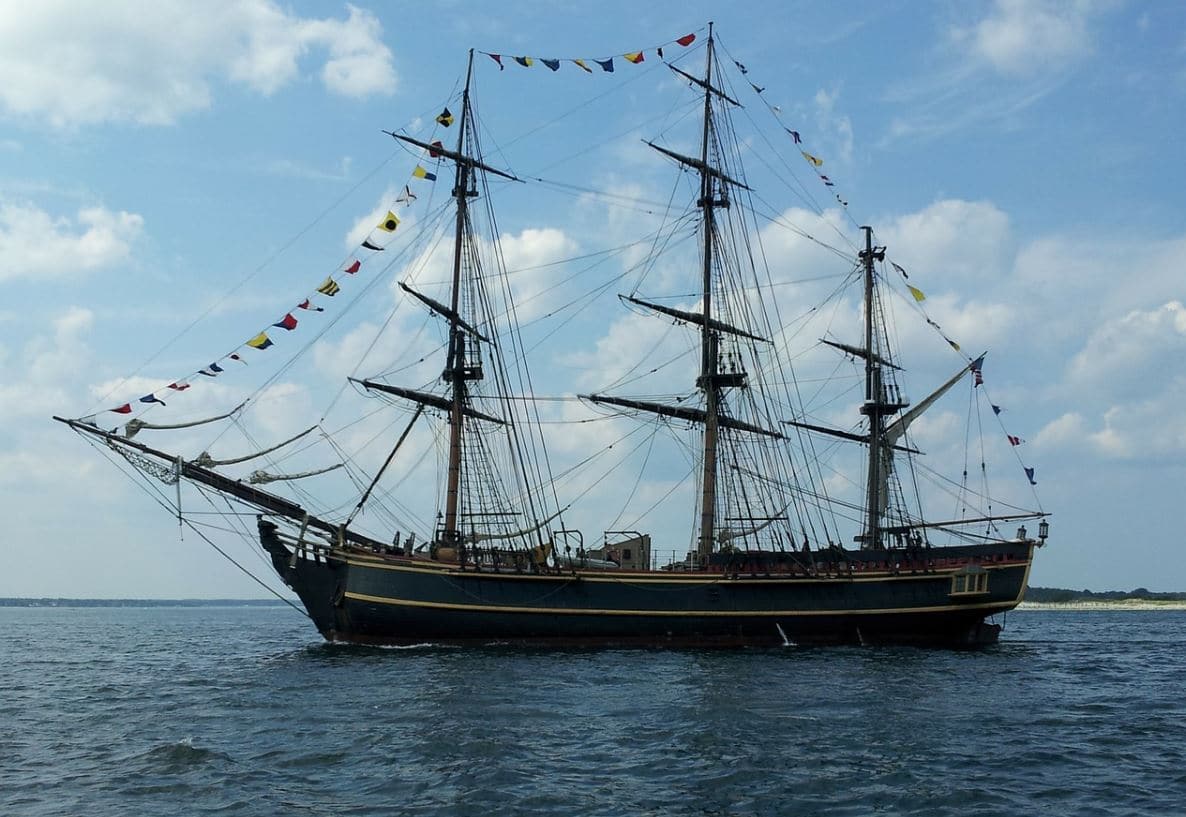Supreme Court to Wade Into Piracy’s Murky Waters With Blackbeard Copyright Case

The U.S. Supreme Court agreed to hear an appeal involving both the 18th century pirate Blackbeard and the question of whether a state can be sued for using another’s copyrighted work without permission.
At the center of the case are images of the remains of a vessel that entered the merchant service in Bristol, England in 1710; was later sold to the French, who converted her into a naval frigate; and later still served as a slave trading ship before being captured by Edward Teach, better known as Blackbeard, in November 1717.
After off-loading the vessel’s last cargo of slaves in Martinique, Blackbeard rearmed the ship with large cannons and rechristened her the Queen Anne’s Revenge — the name believed to be a nod to Teach’s service in the Royal Navy during Queen Anne’s War, also known as the War of Spanish Succession.
He then proceeded to sail a circuit from the west coast of Africa to the Caribbean, attacking British, Portuguese and Dutch merchants ships whenever they crossed his path.
Notorious and ever on the run, Blackbeard ran his flagship aground near Beaufort, North Carolina and moved inland where he hoped to escape detection.
Instead, he was killed less than six months later in hand-to-hand combat with Royal Navy sailors, and his severed head hung from the bowsprit of their ship, the HMS Pearl, during its journey back to Britain.
Filmmaker Sees Work Declared ‘Unclaimed Property’
In 1996, some 278 years later, Intersal, Inc., a private firm that specialized in historic wrecks, discovered the remains of the Queen Anne’s Revenge in about 30 feet of water near the present-day Fort Macon State Park in North Carolina.
Once the ship was definitively identified, Intersal entered into an agreement with the North Carolina Department of Cultural Resources and the Maritime Research Institute intended to safeguard the integrity of the vessel and its contents.
As it turned out, because it lies within three-miles of the North Carolina coast, the state owns the physical wreck.
Intersal agreed to forego a claim to any coins or precious metals recovered from the wreck, and in return was granted media, replica and other rights related to the shipwreck.
As it happened, all through the search and discovery of the wreck, a videographer, Rick Allen and his company Nautilus Productions were on hand, “painstakingly” documenting the retrieval of the pirate ship.
Allen claims the state agencies “conspired to convert Plaintiffs’ copyrighted works into ‘public documents’ that would be made available to the public without Plaintiffs’ consent and without compensation, in violation of the constitutions of the United States and North Carolina, and used and permitted others to publicly display, copy and otherwise use Plaintiff’s copyrighted works without Plaintiffs’ consent.”
Allen believes each of the defendants named in his lawsuit “expected to achieve considerable savings and profits from uncompensated use of Plaintiffs’ work.”
To further this aim, he says, the state adopted a statute last summer that changed the process for how the North Carolina Department of Cultural Resources deals with “unclaimed property.” “The effect of N.C. Gen Stat §121-25(b) is to convert each of the copyrighted works of Plaintiffs that are in the possession of the State into ‘a public record’ as to which there is now ‘no limitation on the use of … any such photograph, video recordings, or other documentary material.’”
Though Allen and his fellow plaintiffs claim they had an absolute right to the footage of the vessel, the state argued that it has sovereign immunity from any lawsuit over it under the Copyright Remedy Clarification Act of 1990.
The district court and the 4th Circuit agreed with the state, though both admitted the issue was complicated.
Congress passed the Copyright Remedy Clarification Act to protect copyrights from infringement by state agencies, but within a few years, the Supreme Court handed down a series of rulings that gave states “sovereign immunity” from being sued for damages in federal courts.
One of those decisions, Florida Prepaid vs. College Savings Bank in 1999, threw out patent and copyright claims against a Florida agency.
The 4th Circuit cited that decision in blocking the videographer’s suit over Blackbeard’s ship.
In petitioning the Supreme Court to hear the case, Nautilus and Allen argued that “as Congress recognized, the very nature of copyrights makes them more in need of protection from state infringement than patents are, just as the statutory remedy is more circumscribed.”
As is their custom, the justices did not comment on why they decided to take up the case.
The case is Allen, Frederick, et al. v. Cooper, Gov. of NC, el al. No. 18-877.






















